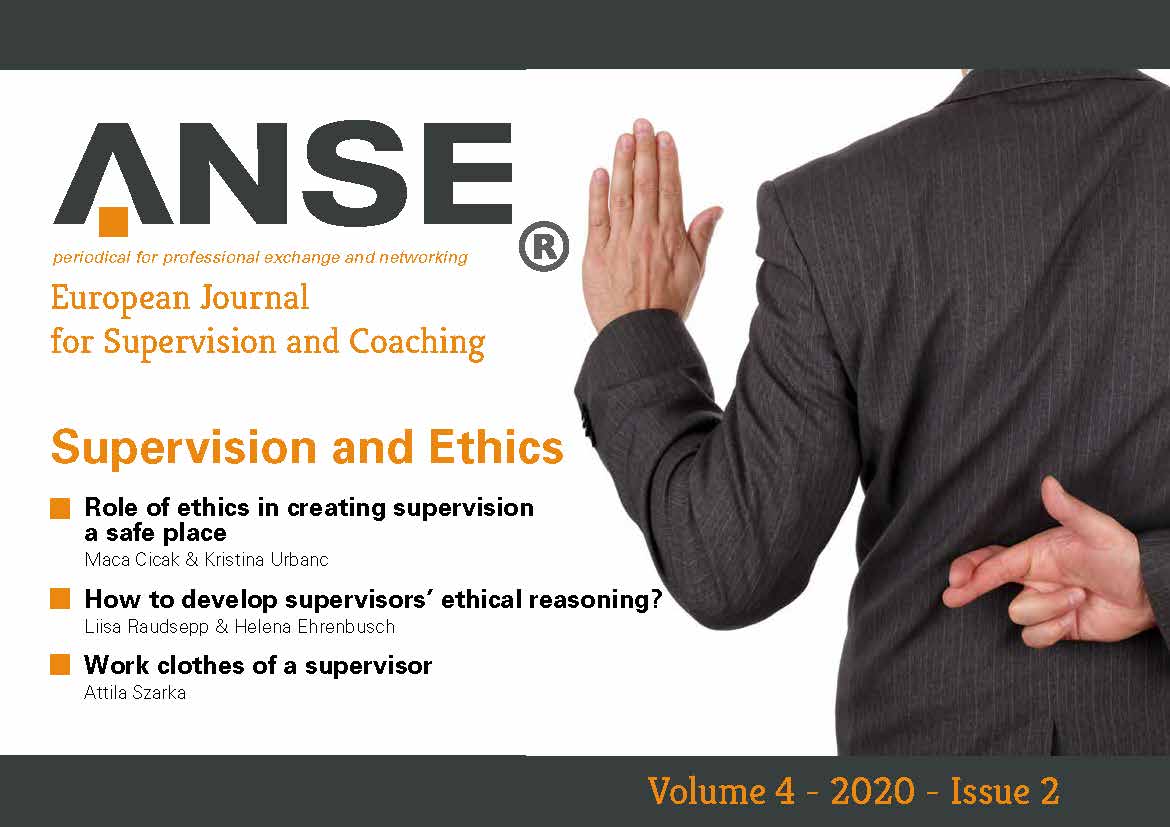ANSE journal Vol 4 – 2020 – Issue 2 about Supervision and Ethics is out!

Sijtze de Roos, our chief editor wrote:
Trust, it would appear, is no longer self-evident. In the past, so they say, people ‘knew their place’ and more or less blindly trusted and followed the leaders of their particular social group, class or political party. Nowadays trust seems to have turned into work. Trustworthiness must be demonstrated by, for example, transparency, authenticity, openness and integrity, all of which need guidance by codes of conduct and action protocols, and documentary proof by audits and visitation reports.
But how reliable are organisations if they conveniently park their responsibilities with a special Chief Integrity Officer? Would that not amount to sheer tokenism, as, for instance, the conduct of commercial banking often shows? And how trustworthy are social professionals if they have their moral dilemma’s formally solved for them by referring to the code of conduct of their professional organisation? Morality by ticking off items on a checklist?
How about supervisors and coaches? Clearly, in the course of their dealings with supervisees they live their ethical standards, or at least should try their best to do so. Their ethics are not only vested in personal experience, they are also grounded in the profession they share with colleagues and which they together shape in their professional associations.
Hence the importance of shared ethics. So it came to be that, in Berlin, on the 22nd of September 2012, the 14th ANSE General Assembly adopted the ANSE Code of Ethics. According to the preamble, it is meant to serve as a guideline against which national organisations could measure their own codes of conduct, ethical guidelines and general moral principles. Its main purpose is to challenge supervisors and their professional associations all over Europe to always act according to moral requirements arising from the nature of supervision …..
Read further and get your copy at http://ow.ly/ZJRa50Cymj4
